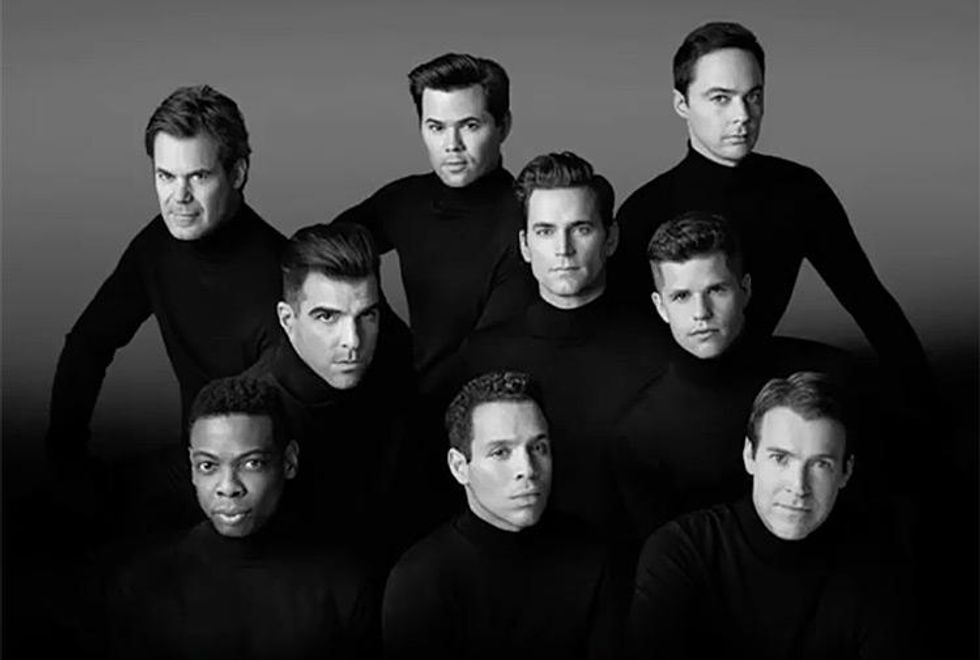When I was 12, wandering around my grandparents' dusty house in Connecticut, I came upon a painting in one corner I had never noticed before. It was a young boy posing with a ball, a few years younger than I was, with red hair and a mischievous grin. Who had painted this picture of me, and I didn't even know it? I got an eerie silence when I asked. It wasn't until years later that I found out why -- sitting alone with my grandmother, who was in the later throes of Alzheimer's, and who asked me who her children were. I told her the three names, including that of the one uncle who was never discussed.
"Frank ... I think Frank killed himself."
Indeed, he had hanged himself at age 18, at a boarding school where he was mocked for being different. My grandparents had sent him to a therapist in New York who was supposed to cure him of the homosexuality that quietly plagued him. This was 1967, two years before the Stonewall riots and one year before The Boys in the Band debuted onstage -- both pivotal moments in launching the visible era of American gay history. While the former was a violent commotion that catapulted a marginal population into the national news, the latter was a less heralded yet vital precursor to the riots.
Boys is now being revived on Broadway for its 50th anniversary. It is simultaneously a historical piece of curious conventions and a contemporary parable of insistent relevance - an apt tour through the preoccupations and yearnings of a group of gay men at a birthday party in one Manhattan apartment, performed in another NYC enclosed space: a theater, a place where strangers can eavesdrop.
There is a claustrophobia, however, to the entire evening, as there has been to many of the small gay communities throughout the U.S.; while the walls are protection against a forbidding outside world, they are also the contours of a pressure cooker where extreme insecurities are thrust into the open.
The game that comes to form the centerpiece of the plot is a merciless theatrical device: each participant must call the person he has most loved in his life and tell him so - regardless of the boundaries of privacy that have previously shielded them. So each character must confront his own unruly heart.
This story should still resonate with a new generation. As young gay people come of age without watching most of their friends die of AIDS, they too are returned to the questions of how to live with each other, how to negotiate a life without clear structures, and how to feel about their own romantic inclinations.
The backdrop remains one where homosexuality is deeply discomfiting to a smaller but considerable share of the population, including many gay people themselves. In a poll released by Harris earlier this year, 31 percent of straight people said they would feel uncomfortable seeing a same-sex couple holding hands, and 30 percent would be upon learning a family member was LGBT. People who buy tickets to nonmusical Broadway plays are generally those most removed from discrimination, geographically, economically, socially, and culturally, and Boys is a reminder of a world that still very much exists.
Above: The cast of the current 50th anniversary revival of The Boys in the Band.
It was cutting-edge at the time, because it bucked the standard conventions of how gay characters and storylines were supposed to unfold - tragically, usually subsumed by suicide in the end. Or, as the troubled host Michael declares to the partygoers, with a subtle wink at the audience, "It's not always like it happens in plays, not all f****ts bump themselves off at the end of the story." Even just making a comedy about gay people was at the time an act of defiance. I wonder how my uncle would have experienced it, if it could have helped him know that feeling different didn't mean he was wrong or worthless, and that, however dysfunctional, there was a community out there, populated by all types. I still know little of his life, though I did inherit a collection of Greek tragedies with his handwritten note behind the front cover: "Poetry suffers in translation." So I imagine he would have liked hearing these men in their own space, in a theater, and in their own vernacular.
The revival that has just opened on Broadway has been raking in ticket sales with its telegenic cast of marquee names. However, anyone who ventures into the Booth Theatre will soon be immersed in a production that is by turn raucously funny and startlingly affecting - a vibrant reminder that theater, at its finest, can take words off a page, a painting off a wall, and breathe them into a kind of living history. In spite of Boys' caustic flair and dark core, it marked the dawning of a period of relative light and liberation after the despair, silence, and suicide of the prior era, and before the vast decimation of AIDS. Here's hoping this wildly popular production still leaves a few seats empty in the house, for those who never lived to see it.
SEAMUS KERNOCHAN is a Los Angeles native.
















Charlie Kirk DID say stoning gay people was the 'perfect law' — and these other heinous quotes
These are some of his worst comments about LGBTQ+ people made by Charlie Kirk.